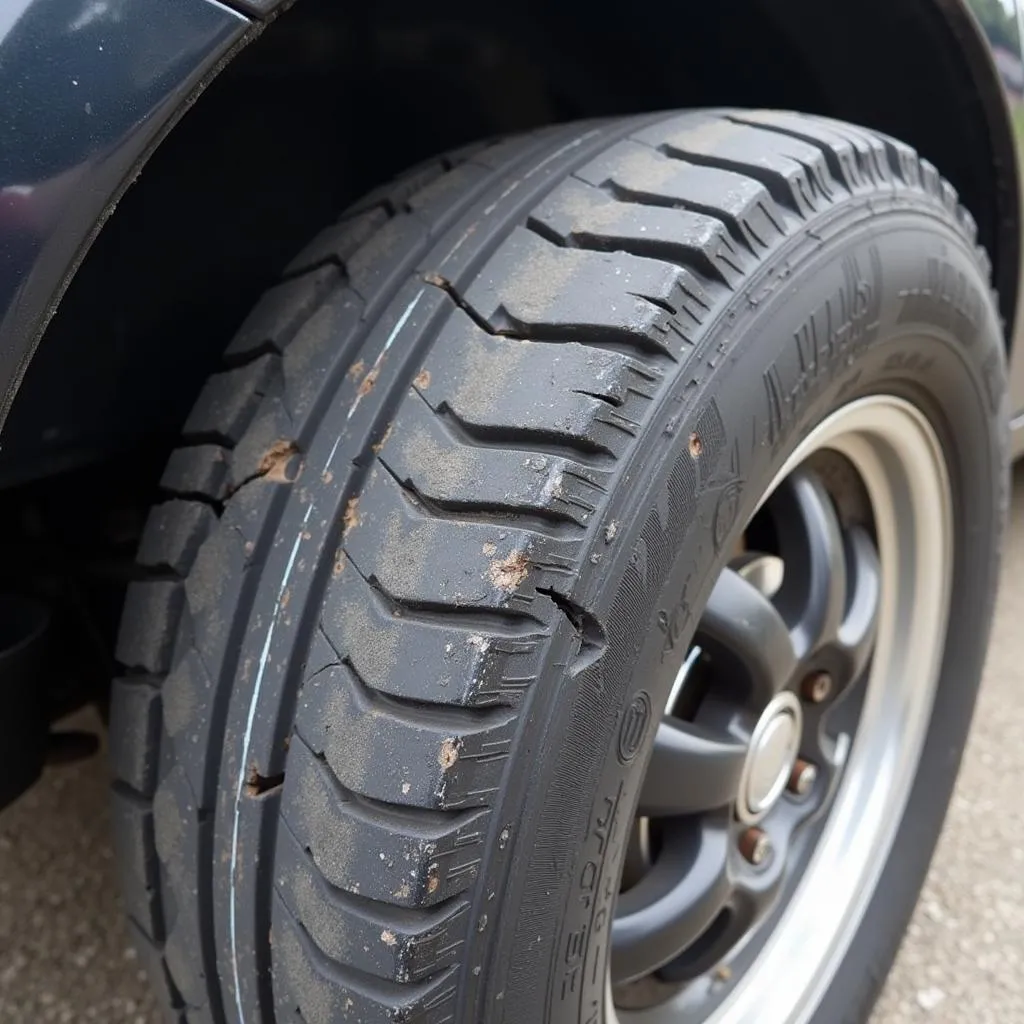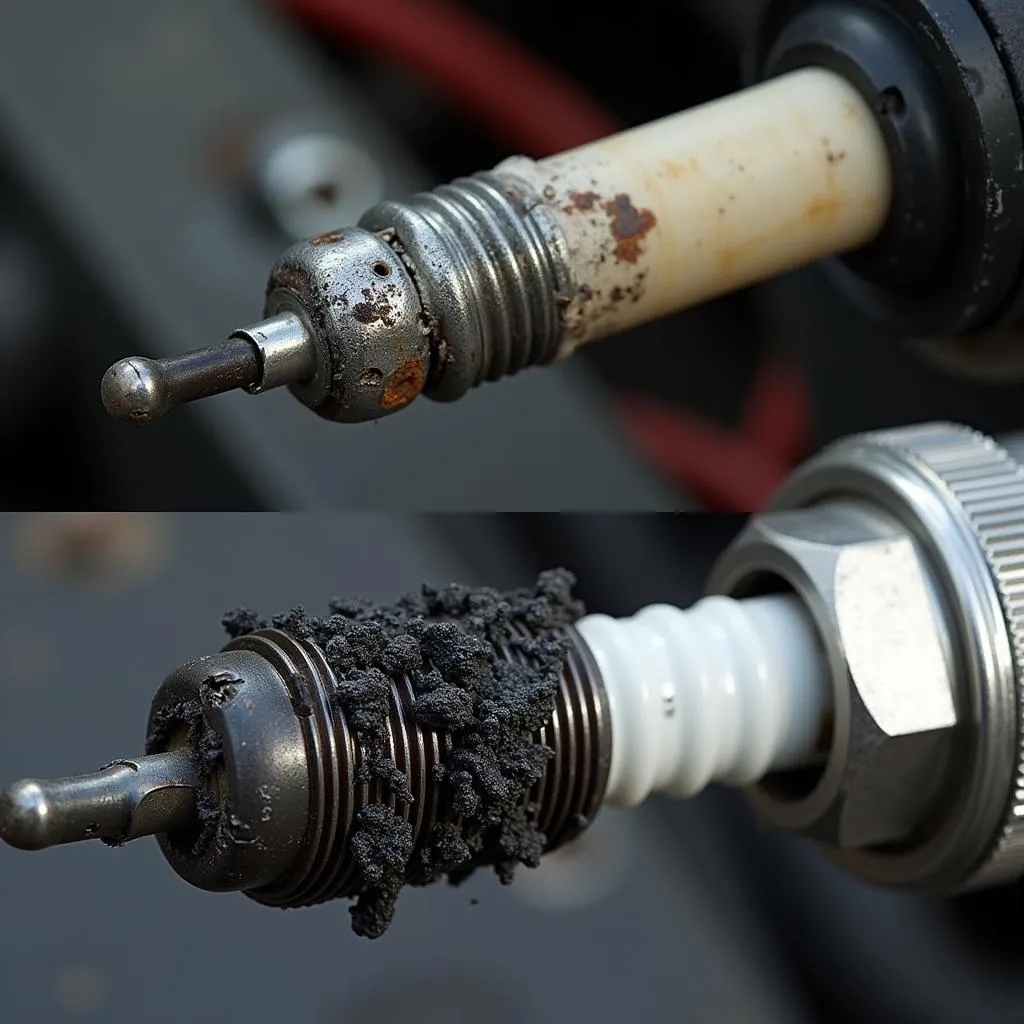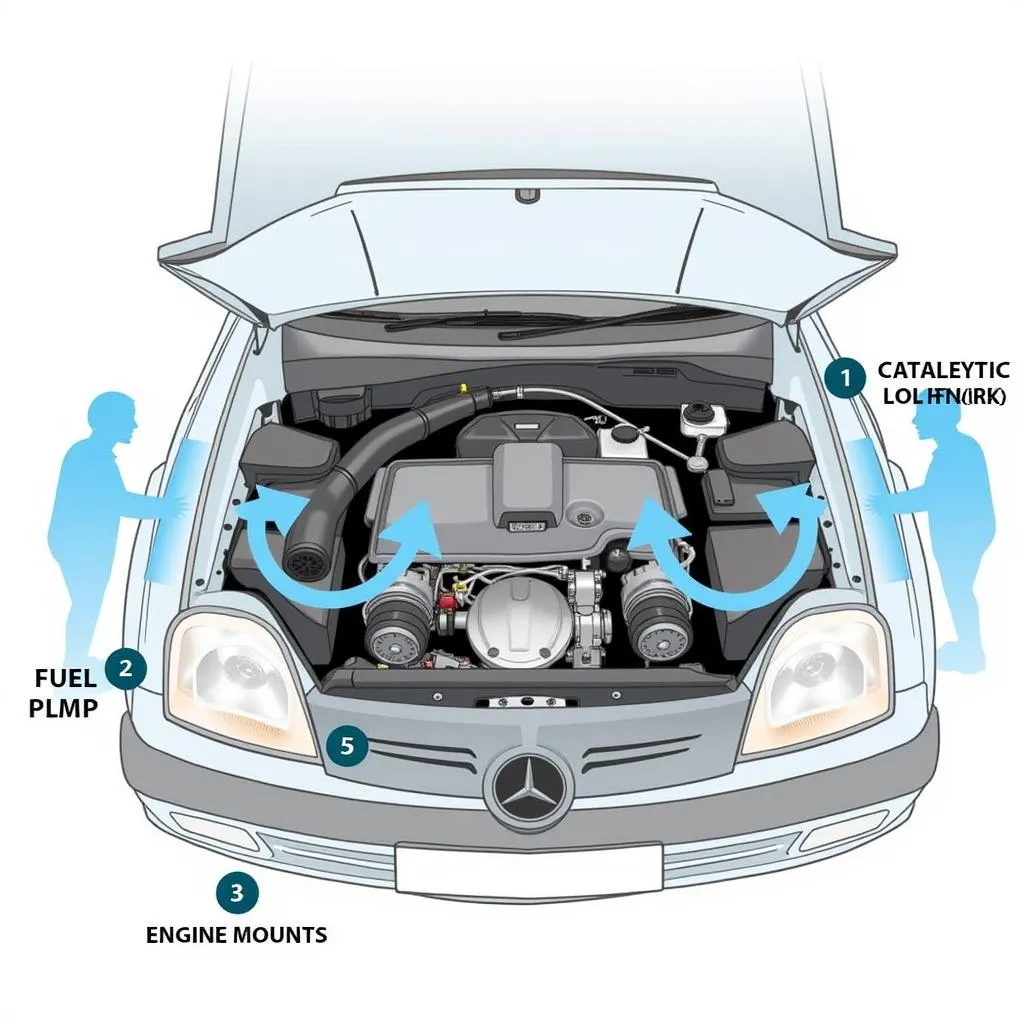A shaking or vibrating vehicle is a common issue that can stem from various factors. While a smooth ride is ideal, experiencing some shaking, especially at higher speeds or during acceleration, isn’t unusual. However, when your car shakes excessively, it’s a clear sign something is amiss and needs immediate attention. Ignoring these vibrations can lead to more severe damage and costly repairs down the line.
Let’s delve into five common reasons why your vehicle might be shaking and how to address them.
1. Worn Out Tires – The Usual Suspects
Tires are the unsung heroes of your vehicle, enduring constant wear and tear. Uneven wear, misalignment, or imbalances can cause vibrations that worsen with speed. Imagine running on a bumpy track; your car feels a similar tremor when tires are worn or damaged.
How to identify and address:
- Visual Inspection: Look for uneven tread wear, bulges, or cracks in the sidewalls.
- Coin Test: Insert a penny into the tread grooves. If you can see all of Lincoln’s head, it’s time for new tires.
- Professional Check: Consult a mechanic for proper tire balancing and alignment.
 Worn Out Tires
Worn Out Tires
2. Worn-Out Brake Components – Shaking When You Brake?
If your car shakes when you apply the brakes, the culprit is likely within your braking system. Worn brake pads, rotors, or calipers can cause vibrations felt through the steering wheel and the entire vehicle.
How to identify and address:
- Feel the brake pedal: Does it pulsate or feel spongy when you brake?
- Listen for noises: Squealing or grinding sounds when braking are telltale signs.
- Professional Inspection: Have your brake system thoroughly checked and serviced by a qualified mechanic.
3. Faulty Spark Plugs – Engine Misfires and Vibrations
Spark plugs ignite the air-fuel mixture in your engine cylinders. If they’re worn, faulty, or improperly gapped, the combustion process gets disrupted, leading to engine misfires and noticeable vibrations.
How to identify and address:
- Engine performance: Do you experience rough idling, reduced fuel efficiency, or difficulty starting the car?
- Check Engine Light: A flashing Check Engine Light often indicates a misfire issue.
- Spark Plug Inspection: Have your mechanic inspect and replace worn spark plugs as needed.
 Faulty Spark Plugs
Faulty Spark Plugs
4. Issues with Axle or Suspension Components – Shaking at Higher Speeds?
As your car picks up speed, issues with the axle or suspension system become more apparent. Worn-out components like ball joints, tie rod ends, or control arms can contribute to vibrations, especially at highway speeds.
How to identify and address:
- Speed-related shaking: Does the shaking worsen as you drive faster, particularly above 50-60 mph?
- Pulling or drifting: Does your car pull to one side while driving?
- Professional diagnosis: Get your vehicle inspected by a mechanic specializing in suspension and axle repairs.
If you experience car shakes above 60 mph, it’s crucial to address this promptly as it can compromise stability and control at higher speeds. Learn more about the specific causes and solutions for car shaking at high speeds in our dedicated article: car shakes above 60 mph.
5. Internal Engine Problems – The More Serious Culprit
While less common, internal engine problems can also manifest as vibrations. Issues like worn engine mounts, a failing fuel pump, or a clogged catalytic converter can cause noticeable shaking. These problems typically require the expertise of a qualified mechanic.
How to identify and address:
- Unusual noises: Listen for knocking, ticking, or rattling sounds coming from the engine.
- Decreased performance: Experience a loss of power, reduced acceleration, or poor fuel economy.
- Professional Engine Diagnosis: If you suspect internal engine problems, consult a qualified mechanic immediately for a comprehensive diagnosis and repair.
 Internal Engine Problems
Internal Engine Problems
Conclusion
A shaking vehicle is more than just an annoyance; it’s a warning sign. By understanding these potential causes, you can address the issue promptly and ensure a smoother, safer driving experience. Remember, regular vehicle maintenance and timely repairs are crucial to avoid costly breakdowns and ensure optimal performance.
Expert Insight:
“Many car owners underestimate the importance of regular maintenance,” says John Smith, Senior Automotive Technician at XYZ Auto Repair. “Timely inspections and preventative measures can save you from major headaches and expensive repairs down the road.”
FAQs:
Q1: Why does my car vibrate when I accelerate but stops when I let off the gas?
This could indicate worn-out engine mounts, a failing fuel pump, or issues with the transmission system. It’s best to consult a mechanic for diagnosis.
Q2: Can a dirty air filter cause my car to shake?
While a dirty air filter can impact engine performance, it’s unlikely to cause shaking. However, it’s still essential to replace a dirty air filter for optimal engine efficiency.
Q3: My car shakes when idling. What could be the problem?
A shaking car while in park might indicate issues with engine mounts, spark plugs, or a vacuum leak. Have your vehicle inspected by a mechanic.
For more information on why your car might be shaking in specific scenarios, check out these articles:
- car vibrates while in park
- why is my car shaking when i accelerate
- car feels wobbly while driving
- car shakes at 60 mph then stops
Need assistance with diagnosing and fixing your shaking vehicle? Contact us via WhatsApp: +1(641)206-8880, Email: [email protected] or visit us at: 276 Reock St, City of Orange, NJ 07050, United States. Our dedicated team is available 24/7 to assist you.